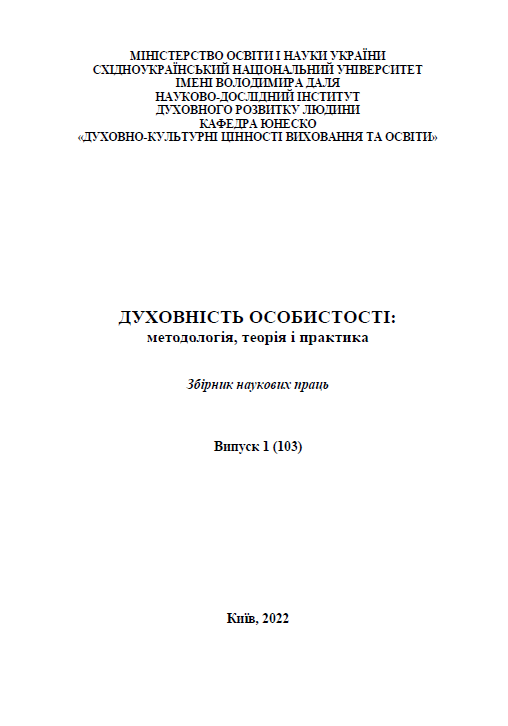EDUCATION OF A CULTURE OF PEACE AS A GUARANTEE OF THE PLANETARY SECURITY
DOI:
https://doi.org/10.33216/2220-6310-2022-103-1-91-98Keywords:
culture of peace, multicultural education, toleranceAbstract
The essence and structure of the pedagogical concept of a culture of peace are analyzed. Its urgency in the current conditions of the war between Ukraine and the Russian Federation is emphasized. It is argued that a culture of peace is a set of measures to cultivate human dignity, a culture of tolerance, a belief in the priority of nonviolence in conflict resolution, respect for human rights nationally and internationally, and an understanding of the inextricable link between human rights and peace.
A brief historical background of the origin and development of the concept of a peace culture is given.
Some components of a culture of peace are analyzed. Particular attention is paid to the analysis of multicultural education and education of tolerance. It is argued that multicultural education includes culturological, ethnohistorical knowledge, understanding of the importance of cultural pluralism, the ability to identify and contribute to the content of future professional activities ideas that reflect the cultural diversity of the world, as well as the ability to participate in the pedagogical process organized as a dialogue of representatives of different cultures in time and space. Tolerance is the privilege of strong and intelligent people, people who do not doubt their ability to move forward to the truth through dialogue and diversity of views and positions.
The essential role of religious teachings in cultivating a culture of peace is pointed out. In the process of communication, a religious person sees in someone else not an object of manipulation, but an equal subject of dialogue, the soul and mind of which God also cares about.
It is argued that a culture of peace includes not only the pursuit of international peace, namely, the absence of war in all its manifestations (local military conflicts, border incidents, hybrid wars, information, trade, cultural, special military operations, etc.) but also universal democratic values (freedom of expression, freedom of assembly, freedom of conscience, freedom of access to information, recognition of pluralism as a basic principle of life in society, etc.), the need to uphold freedom of thought and cultural diversity, to strive for dialogue and mutual understanding, to avoid categorical judgments and assessments, not to reject those who think differently, to treat other people's opinions with respect.

